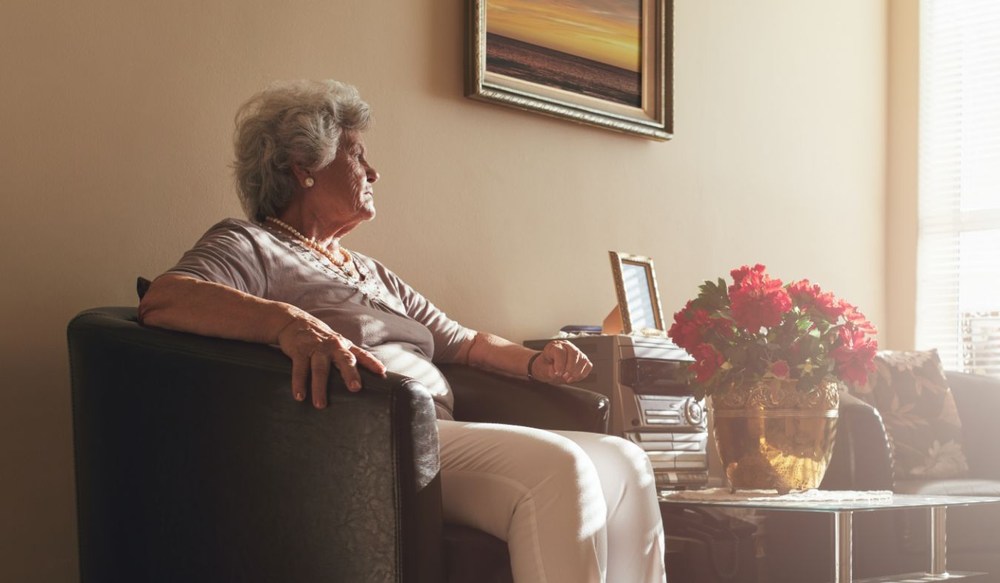How to Choose the Right Hearing Care Provider
Finding the right hearing care provider is a key step in managing hearing
Now serving the Westerly area, Schedule today!

By: admin | August 28, 2024
Technology is always on the move, and it’s no different when it comes to managing hearing loss. One of the latest innovations making waves is virtual reality (VR). Once seen as a tool for gamers and movie buffs, VR is now being used in multiple facets of healthcare, offering a new approach for those dealing with hearing loss. From evaluations and assessments to training and rehabilitation, virtual reality is opening new doors to making hearing care accessible and inclusive for every individual.
Have you ever wondered how virtual reality could affect your hearing health? It’s an interesting question, and one that’s worth thinking about as technology continues to advance.
Virtual reality is a technology that lets you interact with a 3D, computer-generated environment. You can move around and even interact with objects in this virtual world using special equipment like headsets or gloves with sensors. This immersive experience is being used in everything from gaming to education, and now it’s showing promise in the field of hearing health.
The use of VR in hearing loss treatment is still in the early stages, but the possibilities are exciting. For example, imagine being able to practice adjusting your hearing aids in a variety of challenging scenarios without ever leaving your home. This could make adapting to new devices less stressful and more efficient. As technology continues to advance, who knows what other benefits VR might bring to those managing hearing loss?
The meeting point of technology and healthcare is where innovative solutions are born, aiming to improve your quality of life and make managing your hearing loss easier.
Technological advancements, like virtual reality, have the potential to change how you interact with your hearing health. They offer new ways to understand and manage hearing loss, giving you more control over your treatment plan.
As we move forward in this digital age, it’s exciting to think about the possibilities that lie ahead. With technology continually evolving, we can look forward to even more tools and resources designed to support those managing hearing loss. Who knows? The next big breakthrough could be just around the corner!
The use of virtual reality in the medical field is not a new concept. In fact, it’s been used in various areas of healthcare for some time now. For example, VR is used in surgical training, helping doctors to practice complex procedures in a risk-free environment. It’s also used in physical therapy, allowing patients to engage with their rehabilitation process in a more interactive way.
In terms of hearing health, the potential uses for VR are just beginning to be explored. One promising area is auditory training. This involves using VR to create realistic sound environments that can help you better understand and manage your hearing loss. By practicing listening skills in these virtual settings, you could potentially improve your ability to distinguish sounds and speech in real-world situations.
Another possible use for VR is stress management. Dealing with hearing loss can sometimes be stressful or overwhelming. Virtual reality could offer an escape from this stress by providing calming environments or mindfulness exercises that help you relax and focus on your well-being.
Understanding these current applications of virtual reality can give you a broader perspective on how this technology might benefit your hearing health journey. As research continues and technology advances, we may see even more ways that VR can support those managing hearing loss.
Emerging research suggests that VR could indeed play a pivotal role in managing hearing loss. By simulating challenging auditory environments, it can provide valuable practice opportunities for those learning to use assistive devices or techniques. This innovative approach could potentially enhance your ability to cope with real-world situations, thereby improving your overall hearing health.
This kind of targeted practice can be incredibly beneficial for those learning to navigate their daily lives with hearing loss. For example, VR simulations can help users fine-tune their ability to focus on specific sounds, filter out background noise or respond to various auditory cues – skills that are essential in everyday situations but can be difficult to master in the real world. As users become more adept at managing these scenarios in a virtual setting, they may find it easier to apply these skills in real life, leading to improved communication and greater confidence in social interactions.
VR can be used to train not just the ears, but the brain, in processing sound more effectively. This innovative approach can potentially enhance your ability to cope with real-world auditory environments, making daily activities less stressful and more enjoyable. By integrating VR into hearing loss management programs, audiologists could offer a more personalized and engaging form of therapy that significantly improves overall hearing health and quality of life.
The immersive nature of VR technology presents unique opportunities for those seeking new ways to improve their hearing health. Imagine practicing how to use your hearing aids in various challenging situations within a virtual environment. This could not only make the adjustment process less overwhelming but also provide a safe space for you to gain confidence in using your devices.
Virtual reality is more than just an exciting technological advancement; it’s a tool that could potentially transform how you manage your hearing loss.
The benefits of incorporating virtual reality into hearing loss treatment are becoming increasingly evident as technology advances and research expands. One of the primary advantages of using VR in this context is its ability to create a safe and controlled environment where individuals can practice managing challenging listening situations. For those who are newly fitted with hearing aids or other assistive devices, adapting to the complex and often overwhelming auditory environments of everyday life can be challenging.
In a VR setting, individuals can be exposed to various auditory challenges, like background noise in a crowded restaurant, multiple people speaking at once or the sounds of traffic in an urban setting. These simulations are designed to mimic real-life situations as closely as possible, giving users the opportunity to practice and refine their listening skills. By repeatedly navigating these scenarios in a virtual space, users can build their confidence and develop effective strategies for managing their hearing loss in actual social or work environments.
Additionally, the gradual exposure to challenging listening environments provided by VR can ease the transition to using new hearing aids or other assistive devices. Instead of being thrust into real-world situations where they might feel overwhelmed, users can take their time to adjust to different auditory settings at their own pace. This not only helps in reducing anxiety but also ensures that the user becomes more proficient in using their devices, leading to a smoother and more successful integration into their daily life.
However, it’s not all smooth sailing. There are also some drawbacks to consider. The use of VR requires access to specific equipment and a level of comfort with technology that may not be common among all patients. Additionally, the long-term effects of regular VR use are still being studied, so caution is advised until more information is available.
While the potential of virtual reality in hearing health is exciting, it’s not without its challenges. The application of this technology to hearing loss treatment involves overcoming certain hurdles.
The first hurdle is accessibility. Not everyone has access to the necessary VR equipment, which can be costly and require a certain level of technical knowledge to use. Another challenge is the potential for discomfort or disorientation when using VR, especially for those with balance issues or other health conditions. To overcome these obstacles, it’s important to have open discussions with your audiologist about whether VR could be a suitable addition to your treatment plan and how best to implement it.
Virtual reality offers children with hearing loss an innovative way to practice auditory skills in settings that closely resemble their daily environments. For example, VR can simulate a noisy classroom where a child can practice focusing on a teacher’s voice or following a group discussion. This level of immersion allows children to repeatedly experience and overcome the specific auditory challenges they face, building their ability to handle similar situations in real life.
VR’s ability to adapt to each child’s progress adds another layer of effectiveness. As a child becomes more adept at managing simpler tasks, the VR environment can gradually introduce more complex challenges, ensuring continuous improvement. Additionally, the interactive nature of VR makes these exercises more engaging for children, turning what might otherwise be a mundane or stressful practice session into an enjoyable experience. This engagement is crucial for maintaining the child’s interest and motivation, leading to more consistent and meaningful practice, which ultimately helps them develop stronger auditory processing skills.
The safety of using VR for individuals with hearing loss largely depends on the individual’s overall health and comfort with technology. Virtual reality experiences can be intense and may cause disorientation or dizziness in some people. Therefore, it’s important to consult with your audiologist before incorporating VR into your treatment plan. They can assess your suitability for this technology and provide guidance on how to use it safely. Remember, while VR offers exciting possibilities for managing hearing loss, your safety should always come first.
As we continue to discuss the potential of virtual reality in managing hearing loss, it’s important to involve your audiologist in these conversations. Their expertise and understanding of your specific situation can guide you in determining whether VR could be a beneficial addition to your treatment plan. Familiarize yourself with the basics of VR technology and its current uses in healthcare. This will allow you to have an informed discussion about how these advancements might apply to your own hearing health.
While virtual reality is an exciting development in the field of hearing health, it’s not a solution for everyone. It’s always essential to consult with your audiologist before making any changes to your treatment plan. They can provide personalized advice based on their knowledge and experience, helping you make the best decisions for managing your hearing loss.
Could virtual reality be the next big thing in hearing care? How might this technology shape the future of hearing loss management?
In the near future, we could see VR becoming a common tool in hearing health. Its ability to simulate realistic sound environments makes it an excellent platform for auditory training. This would allow you to practice distinguishing sounds and speech in various scenarios, potentially improving your overall listening skills.
As technology continues to evolve, we might see new applications of VR in hearing care that we can’t even imagine today. From stress management tools to more efficient ways of adjusting to new devices, the possibilities are endless. Keeping an eye on developments in this area could prove beneficial for those managing hearing loss.
The world of hearing health is continually evolving, with innovative technologies like virtual reality paving the way for potential new treatments. While VR’s role in managing hearing loss is still emerging, its potential benefits are exciting and worth exploring. Remember, this technology is just one tool among many available to assist you in your journey to better hearing health.
At Atlantic Audiology, our team is dedicated to providing patients with the personalized care their unique situations require. If you want to learn more about how we manage hearing loss and recommend treatments, reach out to our team in Cranston and North Kingstown, RI, by calling (401) 942-8080.

Finding the right hearing care provider is a key step in managing hearing
By: admin | October 20, 2025

Tinnitus is one of those problems that can drive you crazy if you
By: admin | July 29, 2025

As a new parent, you’re already keeping track of feeding schedules,
By: admin | June 20, 2025
